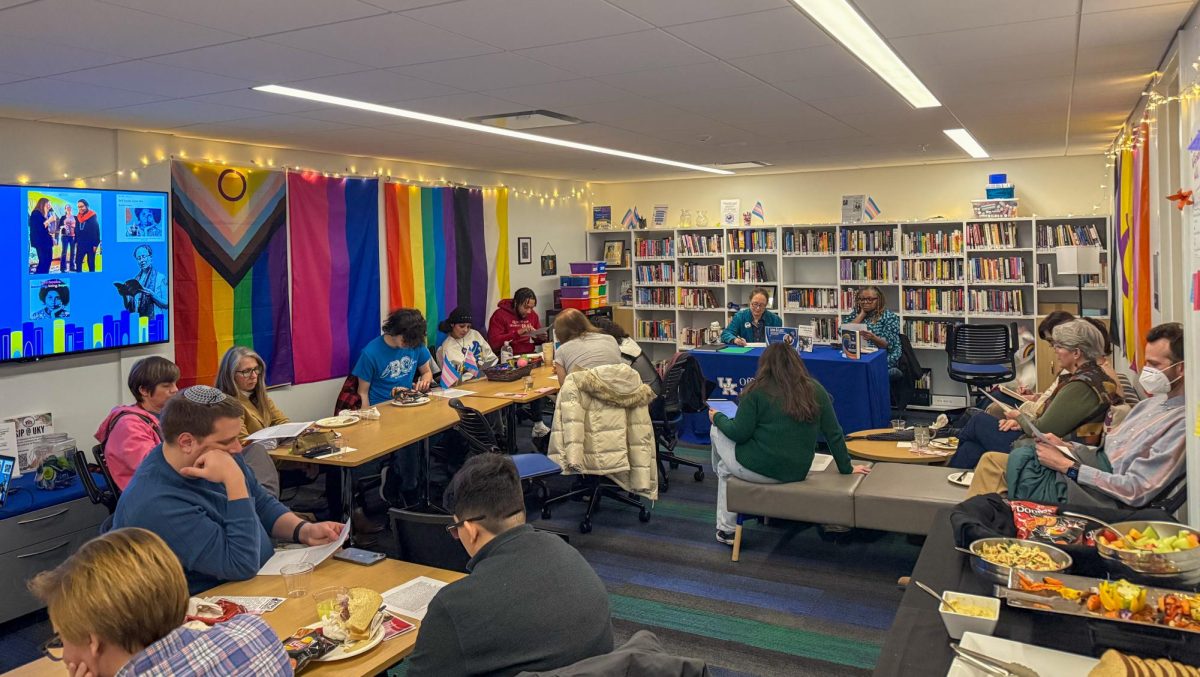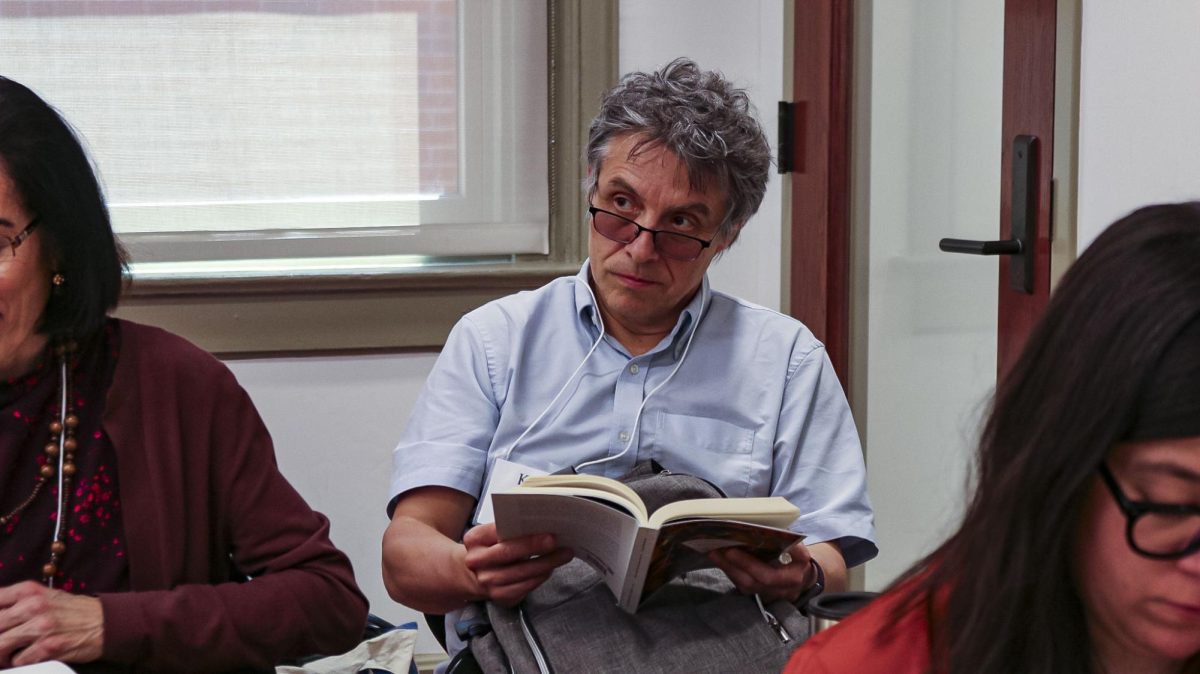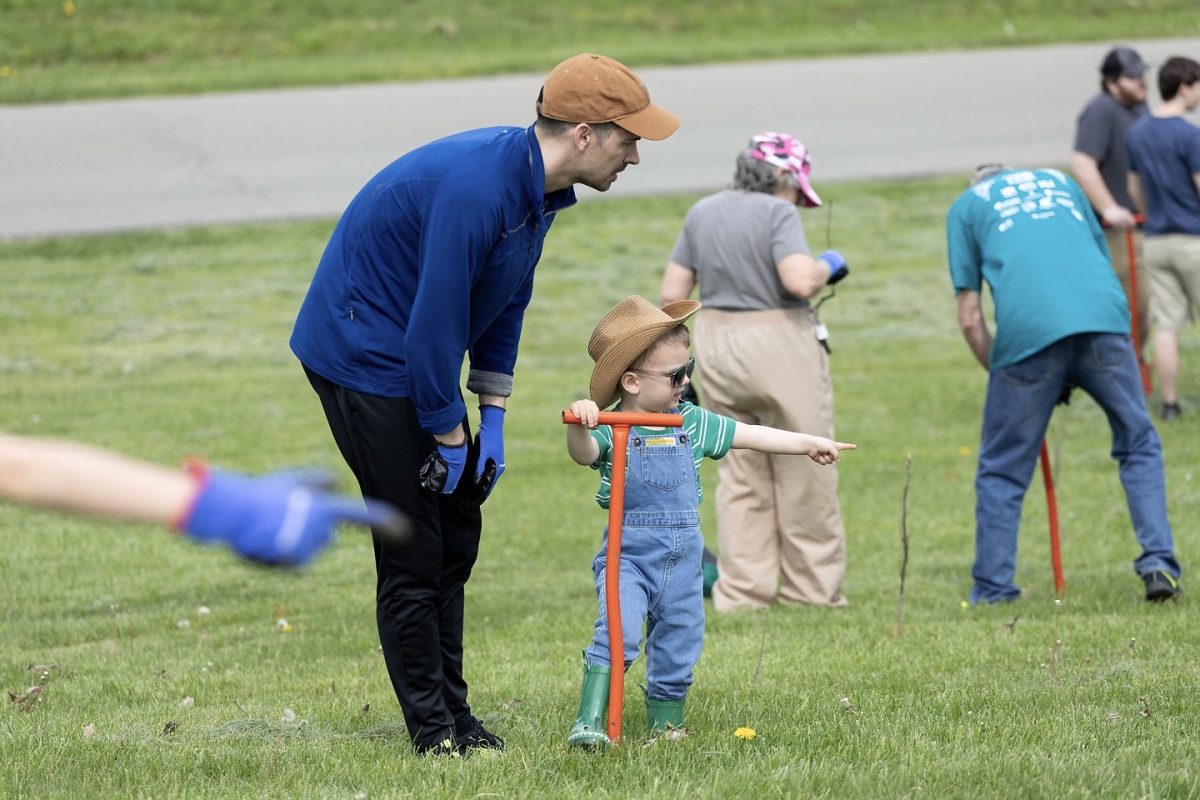Editors note: Throughout her career, bell hooks chose to not have her name capitalized and has been known by her pen name ever since. This story will keep that pattern.
In memory of bell hooks’ life and writing, University of Kentucky members and locals were invited to hear an open conversation between two creative writing award-winning authors—hooks’ lifelong friends.
The University of Kentucky Office of LGBTQ* Resources hosted the first “Lunch and Lit” series out of three titled “Love & Loss: Loving life and transgressing death through the work of bell hooks” on Thursday, Feb. 13, at the Gatton Student Center.
Gloria Jean Watkins, bell hook’s original name, was born and raised in Hopkinsville, Kentucky and became a female intellectual writer who “fostered feminism by and for Black women and girls,” according to the event’s brochure.
Beth Feagan, a professor of general studies at Berea College who is currently writing a memoir about hooks, said events like this come as a fitting and necessary move at UK.
“I think it’s really important for us to stand tall, to stand firm and to speak out our commitment to diversity and equity and inclusion,” Feagan said. “If we fail to do that, we are preemptively bowing down or preemptively giving ground to those who would not affirm these values.”
Crystal Wilkinson, a UK creative writing professor and recent recipient of a Writing Freedom Fellowship, and Feagan focused their talk on the memories they had with hooks as the writer’s intimate friends.
“She (hooks) invited me to her house,” Wilkinson said. “We broke bread, we talked about love, we talked about Black liberation and family…we were friends, but I never stopped learning from her.”
Both Wilkinson and Feagan said they met hooks in the 1990s when they used to work as professors at Berea College.
Feagan said reading hooks’ book “Teaching to Transgress” was the beginning of a mind-blowing moment and realization of who hooks was.
“For me to be so lucky to live on the street she lived on until she passed just really. . .I don’t even have words for how fortunate I feel,” Feagan said.
Starting her speech, Wilkinson read out loud her essay “I Am a Writer Because of bell hooks” that was published in the Atlantic nine days after hooks passed away on Dec. 15, 2021.
Wilkinson said she felt the need to write about her mentor and friend as a reinforcement of her identity as a Black Kentucky writer, despite the burden felt by hooks’ passing.
“She reminded us that no matter the prevalent stereotypes of Kentuckians—white, illiterate, poor—no matter the unfinished business of eliminating as she put it, ‘the imperialist, white supremacist, capitalist patriarchy,’ Kentucky was also a culture of belonging,” Wilkinson said.
According to Feagan, hooks’s life was not only celebrated by writers and feminists but ordinary and common locals who used to help her day after day.
“At one of the memorial services that I attended for bell after she passed, I got to meet Pete who was someone who was in her life, who mowed her grass and did her landscaping and, you know, he is this old white man, just a local person in Berea,” Feagan said. “He missed bell, he loved bell.”
One of the event’s organizers, Jay Stringer-Vaught, a graduate assistant resident librarian, said they wanted to start off the “Lunch and Lit” series with someone they still hold memories from.
Although Stringer-Vaught considers hooks an example of an “educator and visionary,” they remember her as one who loved gossip and always had a joke to tell.
“The first time I ever went to her house, someone called her…she said ‘I love you, I appreciate you and I’ve been thinking about you’ (she) got off the phone and she said ‘I can’t stand them,’” Stringer-Vaught said.
Valentine, who asked for their first name to be omitted, a senior engineering and technology student with an applied design major from Berea College, said when reading hooks’ books, people can find themselves in her pages.
“If she (hooks) went through all that, and she came out the other end amazing and successful, then I have a chance,” Valentine said. “I can do this regardless of what anyone has told me while growing up.”
At the end, Feagan said this event can be seen as an invitation to keep diversity unified.
“Now is the time to live the truth of what bell was saying to us,” Feagan said. “Now more than ever, at UK, at Berea, at everywhere, we need to be reaching across these aisles of perceived differences and join hands with people.”
Feagan said sitting down with people different from each other engaged in genuine curiosity and healthy conversations is what “we really need” today.
“Bring someone who looks different than you into a space—bell exhorted us to do that,” Feagan said. “Go find someone not like you and bring them into your space, into your home, into your church, into your classroom. That’s what inclusion looks like. It’s not a word; it’s practice.”




































































































































































